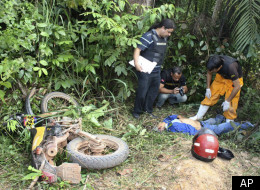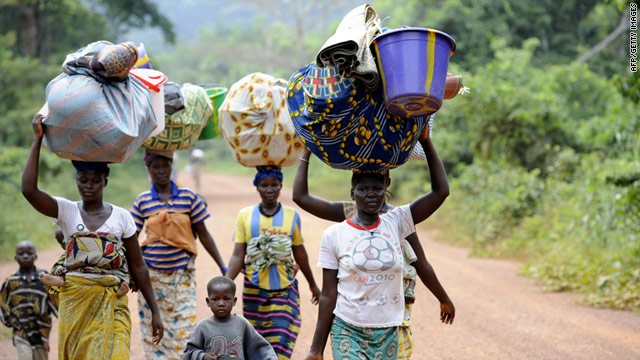By Adom M. Cooper
Impunity Watch, Middle East Reporter
BEIRUT, Lebanon–With the UN serving as the backbone, four members of the Lebanese Muslim movement known as Hezbollah have been indicted for the 2005 assassination of former Prime Minister Rafik Hariri.

The Special Tribunal for Lebanon (STL) gave the indictments to state prosecutor Saeed Mirza. The indictments are meant to remain sealed for 30 days to allowed Mirza to examine them. But it is believed by multiple directions, international and local outlets citing judicial sources, that the arrest warrants named four men: Mustafa Badreddine, Salim al-Ayyash, Hassan Issa, and Asad Sabra.
Rafik Hariri and 22 others were killed in February 2005 in central Beirut when a huge bomb went of as his motorcade moved through the streets. The STL was established in the Hague in 2009 by the UN to try those individuals alleged to have carried out the bomb responsible for the deaths that occurred.
Badreddine is Hezbollah’s chief operations officer, according to multiple sources. He replaced his former cousin and brother-in-law Imad Mugniyeh in the position after Mugniyeh was assassinated in Syria in 2008. The indictment alleges that Badreddine hatched and supervised the plan to kill Hariri, while al-Ayyash led the cell that actually carried out the bombing.
Saad Hariri, Rafik’s son and former Prime Minister, shared these sentiments after receiving news of the indictments.
“The days of the murderers are gone. My heart is full of joy. The martyrs may now rest in peace. I vow ahead of you to keep this country in peace under the ceiling of security.”
Hezbollah officials declined to comment on the situation. But the group has consistently denied any involvement in the assassination. The group claims that the STL is a plot involving the United States, Israel, and France. Hassan Nasrallah, the leader of Hezbollah, has threatened to cut the hand of anyone who tries to arrest the group’s members.
Currently, Hezbollah has three members in parliament. The group forced the eventual collapse of Hariri’s administration in January after he refused to stop working with the STL. Hezbollah and its allies resigned from Hariri’s administration just days before the head prosecutor for the tribunal filed his petition for the indictments to a pre-trial judge.
The United States State Department has already come forward and supported the indictments and four arrest warrants. Spokesman Mark Toner expressed these words in urging the government of Nijab Mikati to act:
“An important step toward justice and ending impunity for political assassinations in Lebanon. The sealed indictments have been handed over. We’re now going to look to see what the Lebanese government does next. We’re looking for it take action.”
There have long been fears inside Lebanon that indictments of Hezbollah members over the assassination of the prominent Sunni Muslim leader, who served as prime minister for several terms between 1992 and 2004, could intensify conflicts between sectarian factions within the country. The two sides have been struggling with the legacy of the 1975-1990 civil war.
For more information, please see:
Al-Jazeera-Indictments issues in Hariri probe-30 June 2011
BBC-Hariri murder: UN tribunal issues arrest warrants-30 June 2011
CNN-Four Hezbollah members indicted in Hariri death, says source-30 June 2011
Reuters-U.S. urges Lebanon to act on Hariri indictments-30 June 2011



